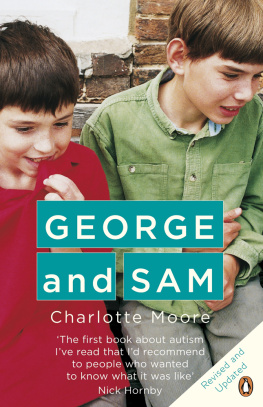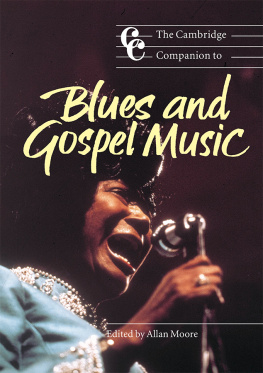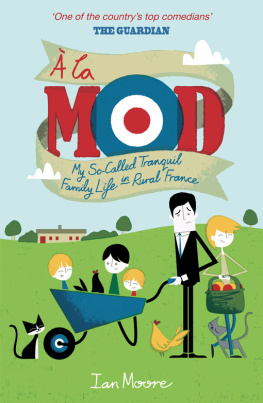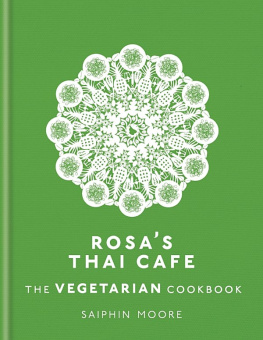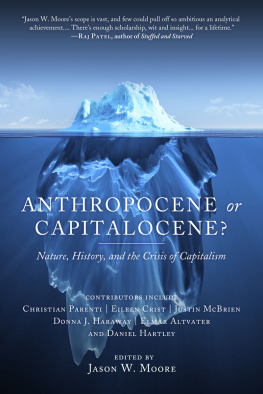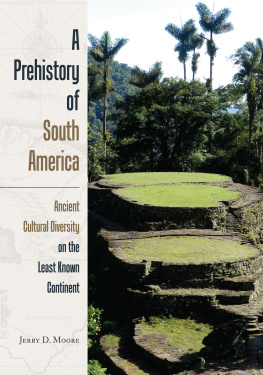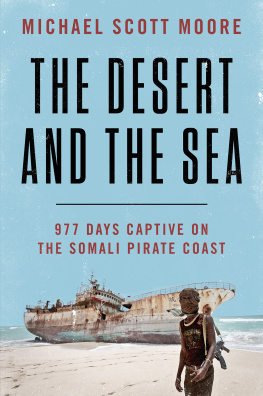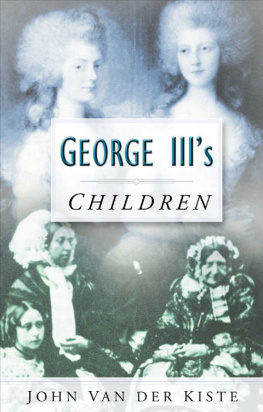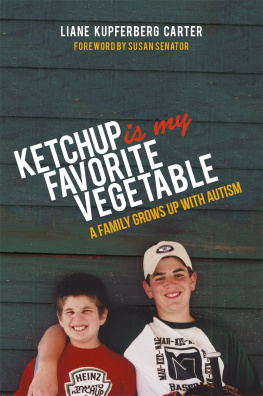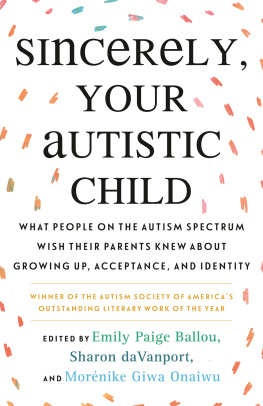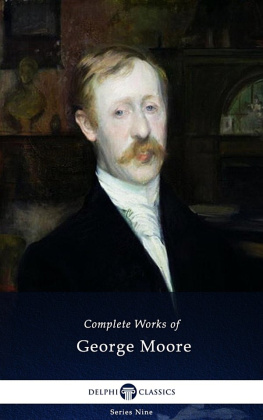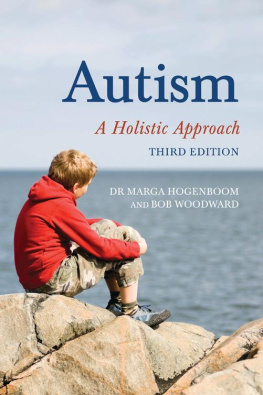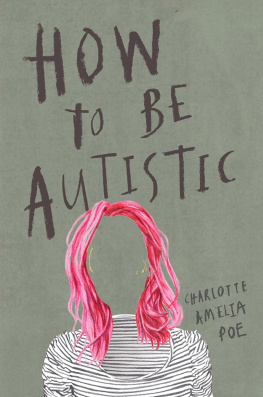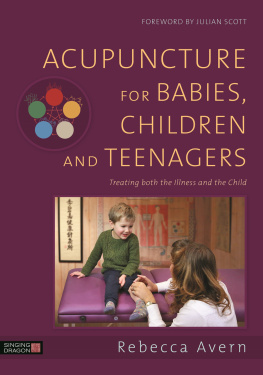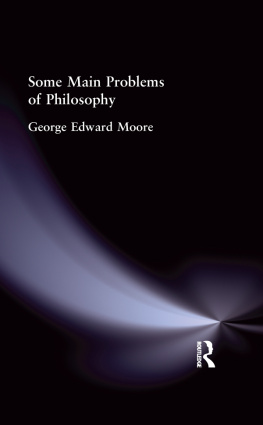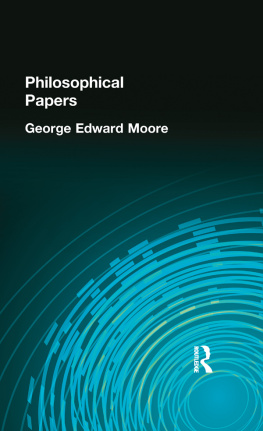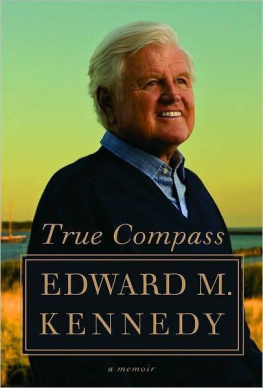
CHARLOTTE MOORE
George and Sam
With an introduction by NICK HORNBY

PENGUIN BOOKS
PENGUIN BOOKS
Published by the Penguin Group
Penguin Books Ltd, 80 Strand, London WC2R 0RL , England
Penguin Group (USA) Inc., 375 Hudson Street, New York, New York 10014, USA
Penguin Group (Canada), 90 Eglinton Avenue East, Suite 700, Toronto, Ontario, Canada M4P 2Y3
(a division of Pearson Penguin Canada Inc.)
Penguin Ireland, 25 St Stephens Green, Dublin 2, Ireland (a division of Penguin Books Ltd)
Penguin Group (Australia), 250 Camberwell Road, Camberwell, Victoria 3124, Australia
(a division of Pearson Australia Group Pty Ltd)
Penguin Books India Pvt Ltd, 11 Community Centre, Panchsheel Park, New Delhi 110 017, India
Penguin Group (NZ), 67 Apollo Drive, Rosedale, Auckland 0632, New Zealand
(a division of Pearson New Zealand Ltd)
Penguin Books (South Africa) (Pty) Ltd, 24 Sturdee Avenue, Rosebank, Johannesburg 2196, South Africa
Penguin Books Ltd, Registered Offices: 80 Strand, London WC2R 0RL , England
www.penguin.com
First published by Viking 2004
Published in Penguin Books 2005
Reissued with a new Postscript and Appendix in Penguin Books 2012
Copyright Charlotte Moore, 2004, 2012
Introduction copyright Nick Hornby, 2004
Front cover photo Virginia Woods-Jack.
All rights reserved
The moral right of the author and of the introducer has been asserted
Except in the United States of America, this book is sold subject to the condition that it shall not, by way of trade or otherwise, be lent, re-sold, hired out, or otherwise circulated without the publishers prior consent in any form of binding or cover other than that in which it is published and without a similar condition including this condition being imposed on the subsequent purchaser
ISBN: 978-0-14-192337-6
PENGUIN BOOKS
GEORGE AND SAM
Charlotte Moore is an author, lecturer and freelance journalist. She has spoken at and chaired many conferences on autism. As well as George and Sam, she has published four novels, three historical biographies and one novel for children, and Hancox, her highly acclaimed history of the house in Sussex where she grew up, and where she lives today with George, Sam and her youngest son, Jake.
For Jake
and
in memory of
Ruby Cruse
and
Mary Oliver
who both loved the boys
Introduction
Im guessing I cant know for sure, of course, but this seems a reasonable supposition that you have picked this book up, if not with a heavy heart, then with an oppressive sense of duty. Perhaps you have an autistic grandson, or nephew most autistic kids are boys and you feel that the least you can do is to find out more about his condition, especially since you dont know him as well as youd like to. (How can you, when he wont speak to you, or play with you, or possibly even be in the same room as you?) So maybe reading a book will help, somehow will show that, even though you feel excluded from his world, you do care.
Or perhaps you are more directly affected; perhaps your own child is autistic, as mine is, in which case your need to read a book on the subject might feel more urgent. If the diagnosis has been recent, then you will almost certainly be desperate to know more. Maybe something in these pages will help to alleviate the panic you feel when youre told that your child has a condition for which there is no cure; indeed, maybe youre hoping that George and Sam will tell you that there is a cure, contrary to all the information youve been given by health professionals. Books tend to need narratives, after all, and the most popular kind of narrative for books about disability is the kind that takes us from the darkness into the light, from despair to hope, from disaster to triumph.
It would be nice to think that there might be a third category of reader, too: some of you might want to read George and Sam in the same way that we all read Wild Swans, even though many of us had no burning interest in the history of China; or Claire Tomalins book about Pepys, despite a long-held suspicion that Pepyss diaries might be on the dull side. Perhaps you read Charlotte Moores brilliant columns about her autistic sons in the Guardian (included in this edition as an Appendix); if you did, then youll already know that in the right hands, this subject, like all subjects, can be made to entertain, as well as educate and move. The non-fiction bestseller lists frequently prove that we all want to know more about everything, even if we didnt know that we wanted to know were just waiting for the right person to come along and tell us about it.
I have an autistic son, but even so, I would place myself in this last category of readers. Like a lot of people, I sense within me a reluctance to read books about disability. I think Ill end up feeling guilty, or hopeless, or manipulated, or just bad. (And there are so many disabilities where does one start? Where, more to the point, does one stop?) And I particularly dont want to be made to feel bad precisely because I have an autistic son. As any parent in my situation will tell you, energy and optimism are precious commodities, not to be squandered, and certainly not on a book that describes a condition with which you are wearyingly familiar. So I hope you, and the author, will understand when I say that this is not the sort of book I would normally have chosen to read.
If you belong in the second category, I should tell you right now that Charlotte Moore offers no cure for autism, nor does she attempt to make you feel better about the huge chunk of bad luck that has fallen from a clear blue sky, like a chunk of frozen 747 urine, and landed right on your head. This is a cleareyed observation of her sons and their behaviour; she makes no attempt to sentimentalize them, and she certainly doesnt attempt to tell us that they are now, as she speaks, embarked on a programme or a diet that will eventually take them to Cambridge or RADA or 10 Downing Street. She knows that her sons are autistic, and will stay autistic, for the rest of their lives, unless there is some currently unimaginable scientific breakthrough. And as a consequence, I would say that this might be the only book you need to read about your childs condition. It tells you the things you will need to know about education, and diet, and behaviour modification, and sleep but the advice is sensible and practical, rather than evangelical, and in any case it is not the point of the book. The point of George and Sam is to inform, yes, but also to entertain us and engross us and, like all the best books, to resonate.
Im not sure I would have found it quite so entertaining a few years ago, when my son was first diagnosed. Nowadays, Im used to glancing out of the kitchen window on a freezing November night and seeing a naked boy bouncing on a trampoline in the dark. It makes me laugh. (I dont just laugh, by the way, before anyone contacts social services. I go outside and get him in, too.) Back then, when I didnt understand Danny so well, and didnt really want to think about how his disability might affect me beyond the next few days, the naked trampolining would have alarmed and depressed me; it would have been yet another indication that my life as a parent was not the one I had anticipated.
This process of letting go is long and difficult, and I feel as though Im right at the beginning of it. Charlotte Moore is, I suspect, right at the end, and there are very, very few parents who ever get there. And this is what makes
Next page
